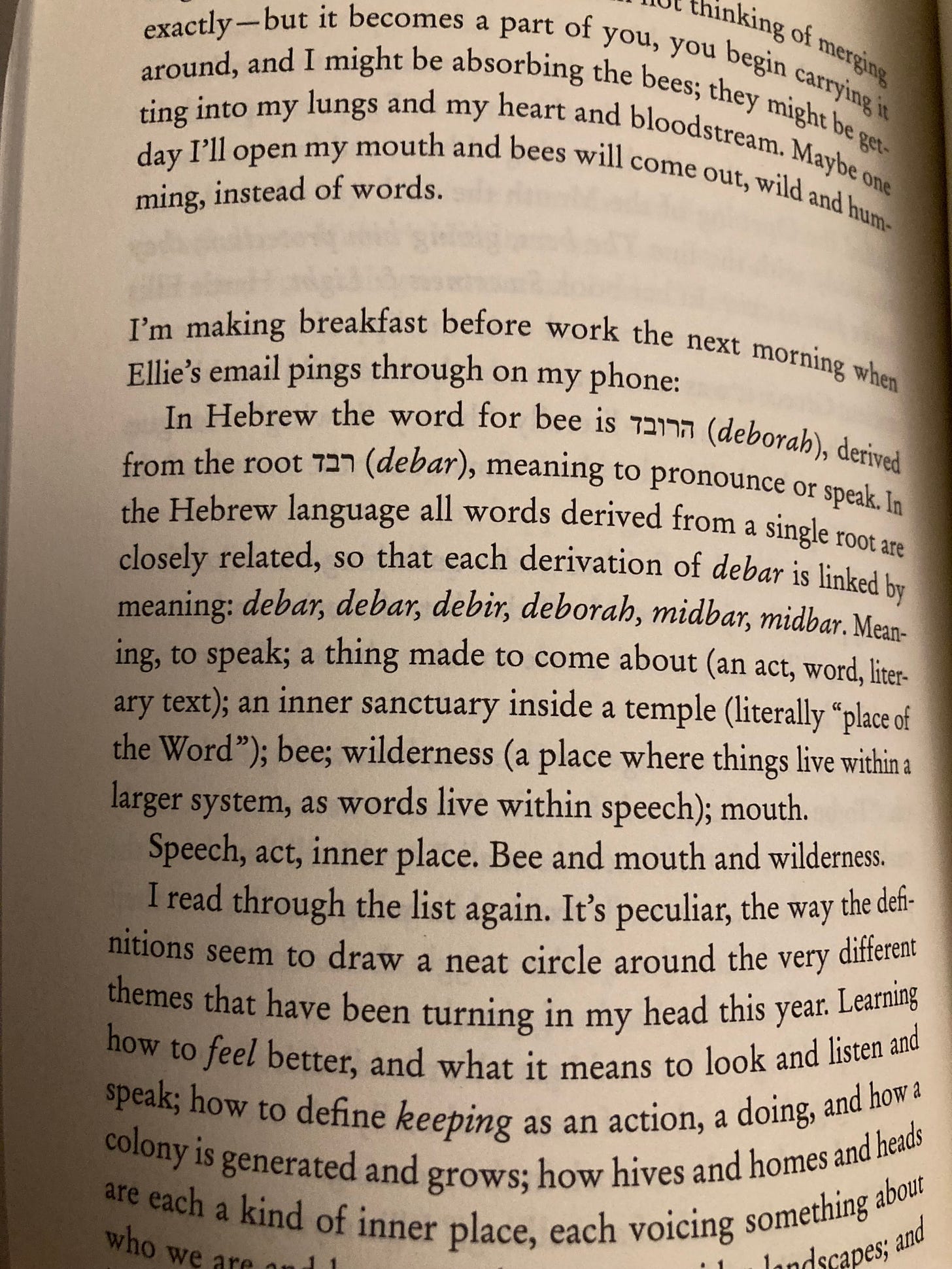The meaning of our name
If words build the world, our name builds us
I woke up to a sweet message from my friend Marie today. She found the meaning of my name in the book “A Honeybee Heart Has Five Openings” by Helen Jukes and sent me this image of the book:
I had a few times throughout life looked for the meaning of my name, and had only found that it meant “bee", but now, with the root origin in Hebrew, I could search for it with more detail.
I’m quickly writing down this so it is marked on this day. Here is an extended excerpt from the website “Abarim Publications:”
Excerpted from: Abarim Publications' Biblical Dictionary
The name Deborah is identical to the word דבורה, meaning bee, and both come from the magnificent root דבר, meaning to speak or pronounce:
דבר
The verb דבר (dabar) means to formalize: to deliberately establish and pronounce something's name or definition. This causes the thing to become "real" in the mind of whoever understands this word, name or definition, and this in turn explains why all of creation was spoken into being, and Man in turn "named" all the animals by their name and finally his Wife by hers (Genesis 2:19-23). This principle sits at the base of nominal reasoning and thus human awareness and ultimately Information Technology.
Noun דבר (dabar) means word. It also means "thing" since the naming of a thing causes the experienced reality of the thing. All thus created "things" together form the whole of experienceable reality, which in turn is called the Word of God.
Noun דבר (deber) describes any deadly pestilence, which is a "word" that breaks unstable compounds apart. In nature this occurs via the Weak Nuclear Force. The ability of unstable compounds to break apart sits at the heart of all progress and thus all reality.
The rare noun דבר (dober), refers to a pasture; probably a well-defined fenced-in field upon which sheep graze. Figuratively this word obviously refers to some specific Holy Book from which a community feeds (the books of the Bible originated as separate works, with their separate adherers). Noun דברה (dibra) means matter or issue, and the similar noun דבורה (deborah) describes the bee (this probably because bees make honey, and "milk and honey" denote essential sustenance). The noun דביר (debir) was a nickname for the Holy of Holies and means "place of the word".
The noun מדבר (midbar) literally means "place of wording" and is used once to mean mouth and 270 times to mean wilderness, and because a wilderness is a place without cultivation, any cultivation needs to spring up in a wilderness. And anybody serious about the quest for true insight needs to leave the culture (or religion) of his heritage behind and spend a stint in the uncharted wild. All major players in the Bible did so.
This excerpt helps me to trace so many aspects of my work that I’m involved with today: the importance of speaking up, the search for the right words, the impact of words on reality, the participation in social systems, the formation of compositions and understanding of layers of meanings and actions, and the creation of sweetness in life.
A note on the image on the cover of this post: That is a photograph by Tahila Mintz that helped me make a work in corporeidade titled “Blue Mud" (2022). I was pregnant with Ulysses, and I chose this image because my children told me their names when I was pregnant. I had never thought of Helena or Ulysses before, and at some point during their pregnancies, their names became clear to me.

